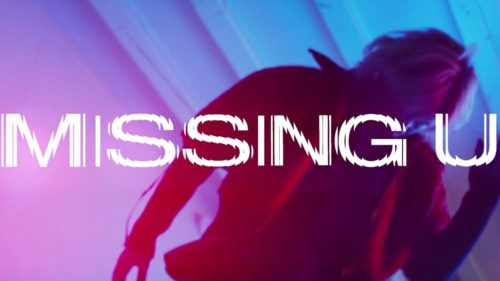It was Aeschylus who famously said, “There is no pain so great as the memory of joy in present grief.” For Robyn, that post-breakup grief has long been a constant in reminding her how much more painful the present is in comparison to former joys. Those former joys of not having been jilted, treated disposably. The intertwined relationship between memory and pain is a complicated one, predicating the entire basis for the ultimate cliched cult classic of the tortured romantic (whether genuine or just a faux emotional millennial), Michel Gondry’s/Charlie Kaufman’s–for both men were essential in how the final product turned out–Eternal Sunshine of the Spotless Mind. As though herself summarizing the premise of the film that prompts Clementine Kruczynski to erase her memory as her relationship with Joel Barish reaches its threshold (and, him, in turn, to do the same), Robyn describes the single as being “about this trippy thing that happens when people disappear. It’s like they become even more clear, and it’s like you see them everywhere.”
And it’s true that, so often, the less we have access to a person any longer in our lives, the more we tend to romanticize–almost deify–them…to the point where thinking about them becomes like The Jesus Prayer. It’s not conscious, it’s just a mode of existence when you, like Robyn, “can’t make sense of all the pieces/of [your] own delusions.” So you do what you can, clinging to the “empty space” that was “left behind” by the one, whoever it may be, that still haunts, even if it was not someone of a romantic bent, but also a friend or family member lost to growing apart or death. As Robyn encapsulates it, it’s, “This part of you, this clock that stopped/I keep thinking you’re still right beside me/This residue, it’s all I got.”
Wielding the arpeggiator that was so instrumental (yes, I made that pun) to the 2010 portion of her career (that somehow Lena Dunham got credit for thanks to resuscitating “Dancing On My Own” when Girls first syntheticized the Brooklyn experience in 2012), there is an airy quality to the track. Sparser than usual for a Robyn song, she puts strong emphasis on her emotional, yet controlled vocals. It is also a more classic throwback to the expected sound of Body Talk, whereas “Honey” (the track that Dunham somehow got Robyn to lend to the final season of the aforementioned manufactured version of blancas in BK), the only other offering we’ve heard thus far, appears to be an entirely different direction for the beloved Swede–albeit still a dance-oriented one of course.
Also speaking to that notion of “this clock that stopped” whenever a person exits your life abruptly, Robyn touches on the phenomenon Chuck Klosterman covered so succinctly in an essay on Saved By the Bell called “The Tori Paradox” from his best known book, 2003’s Sex, Drugs and Cocoa Puffs. In it, he explains that while Saved By the Bell offered little in realism or mental stimulation, the final season did unwittingly touch on something all too real as the writers of the show worked in a character named Tori (Leanna Creel) as a sort of composite for the episodes in which Jessie Spano (Elizabeth Berkley) and Kelly Kapowski (Tiffani Thiessen) could not appear.
Klosterman described this sudden and bizarre lack of need to explain two main characters’ noticeable absence as follows:
On paper this seems idiotic, borderline insulting, and—above all—unreal. But the more I think back on my life, the more I’ve come to realize that the Tori Paradox might be the only element of Saved By the Bell that actually happened to me. Whenever I try to remember friends from high school, friends from college, or even just friends from five years ago, my memory always creates the illusion that we were together constantly, just like those kids on Saved By the Bell. However, this was almost never the case. Whenever I seriously piece together my past, I inevitably uncover long stretches where somebody who (retrospectively) seemed among my closest companions simply wasn’t around. I knew a girl in college who partied with me and my posse constantly, except for one semester in 1993—she had a waitressing job at Applebee’s during that stretch and could never make it to any parties. And even though we all loved her, I can’t recall anyone mentioning her absence until she came back. And sometimes I was the person cut out of life’s script.
To her fans for the past eight years, Robyn has been the one who has cut herself out of their script, though they’ve managed to keep her alive in a way that only Williamsburg could. Sometimes, that’s what we have to do for our own self-preservation, exit left without warning and return once we’ve mentally prepared yet again to take the stage with a cast of characters that we can often feel we’ve outgrown. What’s more, they’re all “missing u” anyway, despite the obvious fact that they’ve very happily continued their lives without you all this time. It’s just the nature of The Tori Paradox, of life itself. So you can “keep digging through [your] waste of time” with the person who abandoned you, but so long as they’re not there, the picture’s only going to remain incomplete–fortifying that undeserved consecrated vision you have of them.





















